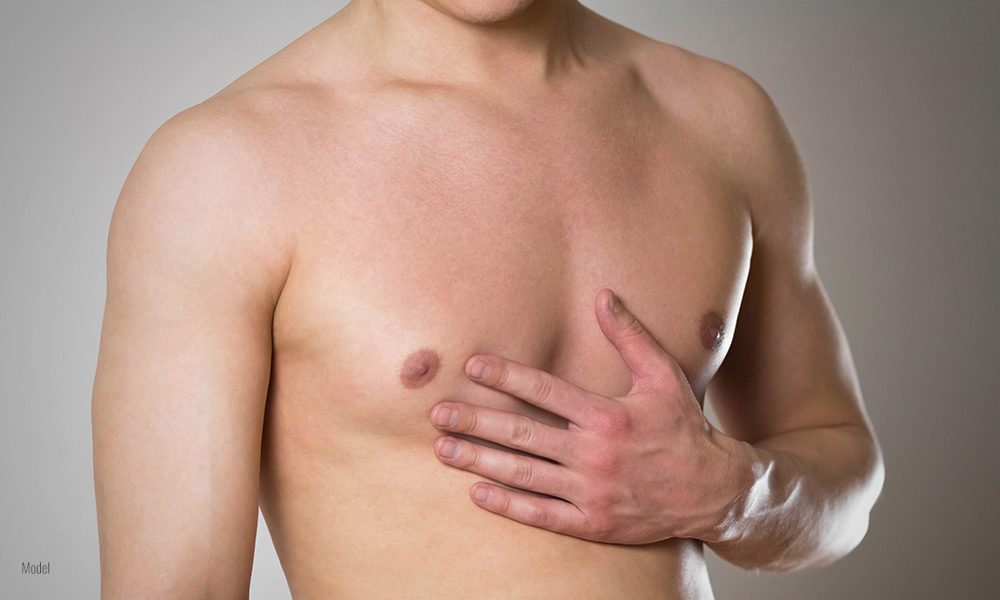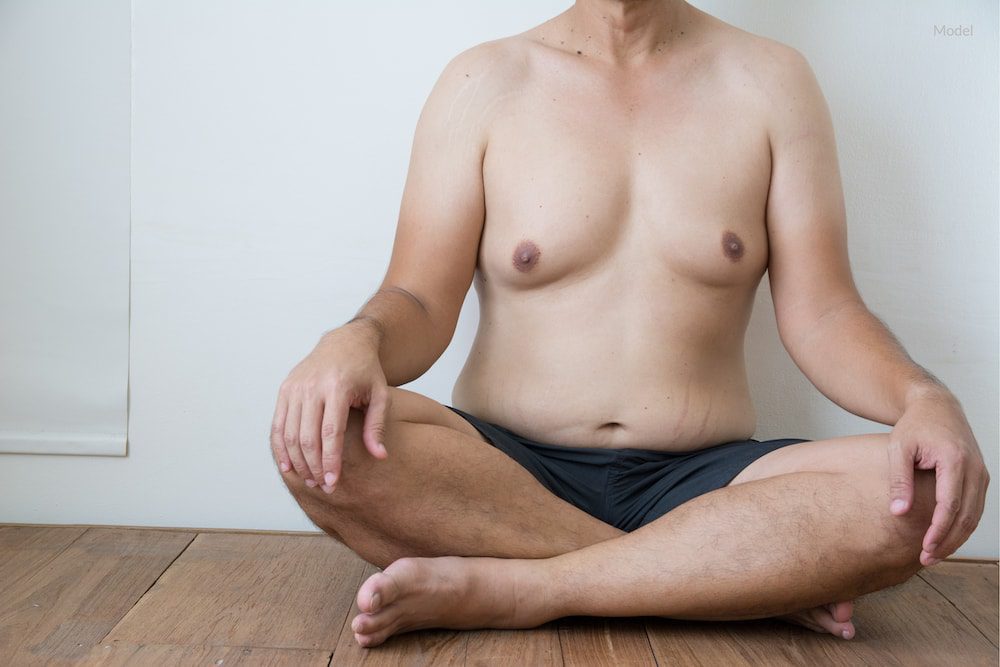Do I Need Surgery to Correct Gynecomastia?
Gynecomastia Surgery | The Office of Dr. Vincent Hung

Gynecomastia, the development of enlarged breast tissue in males, can cause physical discomfort and psychological distress. While it is often associated with hormonal changes during puberty, gynecomastia can affect individuals of all ages and is influenced by various factors. In this informative blog, we’ll explore the causes of gynecomastia, potential treatments, and when surgery becomes the only option.
4 Min Read:
What is Gynecomastia?
Man-boobs may be what some say, but the official term of gynecomastia refers to a condition characterized by the enlargement of glandular breast tissue in males, leading to the appearance of swollen or protruding breasts. This condition can affect one or both breasts and may be accompanied by tenderness, discomfort, or nipple discharge.
While gynecomastia is common during puberty due to hormonal fluctuations, these imbalances can also occur in adults. Certain medications and underlying medical conditions can also contribute to enlarged breast tissue in males.
What Causes Gynecomastia?
Most cases of gynecomastia are caused by a problem with hormone levels. Here are a few reasons males can experience enlarged breast tissue:
- Hormonal imbalances in pubertal gynecomastia: During the preteen/early teen ages (puberty), hormonal fluctuations can temporarily disrupt the balance between estrogen and testosterone, leading to the development of gynecomastia in adolescent boys. In many cases, pubertal gynecomastia resolves independently as hormone levels stabilize.
- Hormonal imbalances in late teens and adults: Changes in hormone levels after adulthood, particularly an increase in estrogen relative to testosterone, can lead to the development of gynecomastia. This hormonal imbalance can occur during puberty, aging, or as a side effect of certain medical conditions or medications.
- Obesity: Excess body fat can contribute to the accumulation of estrogen, leading to hormonal imbalances that promote breast tissue growth in males.
- Medications: Certain medications, including anabolic steroids, anti-androgens, and chemotherapy drugs, can interfere with hormone levels and increase the risk of gynecomastia.
- Underlying medical conditions: Gynecomastia may be associated with underlying medical conditions such as hypogonadism, liver disease, kidney failure, hyperthyroidism, or tumors affecting the testes, adrenal glands, or pituitary gland.
Treatment Options for Gynecomastia
A conservative approach is always worth trying, and you might consider the following options:
- Observation: In cases of pubertal gynecomastia, observation may be recommended initially, as the condition often resolves independently as hormone levels normalize. Close monitoring by a healthcare provider can help determine if further intervention is necessary.
- Lifestyle changes: For individuals with gynecomastia related to obesity or lifestyle factors, adopting a healthy lifestyle that includes regular exercise, balanced nutrition, as well as the avoidance of alcohol and cannabis may help reduce breast size and improve overall health.
- Medication: In some cases, drugs such as selective estrogen receptor modulators (SERMs) or aromatase inhibitors may be prescribed to help reduce breast size by blocking the effects of estrogen or reducing estrogen production.
When is Surgery the Only Way to Correct Gynecomastia?
When conservative measures fail to achieve desired results or when gynecomastia causes significant physical or psychological distress, surgical intervention may be necessary. Male breast reduction surgery, also known as gynecomastia surgery, involves the removal of excess glandular tissue and fat from the breast area to achieve a flatter, more masculine chest.
Surgery may be the only option for treating gynecomastia in the following scenarios:
Persistent Gynecomastia
If gynecomastia persists beyond puberty or fails to resolve with conservative measures, surgical intervention may be necessary to achieve the desired results.
Significant Discomfort
Gynecomastia that causes significant physical discomfort, pain, or restriction of movement may warrant surgical treatment to alleviate symptoms and improve quality of life.
Psychological Distress
Gynecomastia can have a profound impact on self-esteem, body image, and mental well-being. For individuals experiencing psychological distress or emotional discomfort due to their breast size, surgery may offer a solution to improve confidence and self-confidence.
Cosmetic Preference
Even mildly enlarged male breasts can affect one’s self-image, and some men may seek surgery to achieve their ideal aesthetic. If excess tissue consists only of stubborn residual fat after weight loss or strength training, a minor liposuction procedure can correct the issue if the skin is not loose.
Gynecomastia is a common condition that can affect males of all ages and is influenced by various factors, including hormonal imbalances, obesity, medications, and underlying medical conditions. While gynecomastia may resolve on its own in some cases, surgical intervention may be necessary when conservative measures fail to achieve desired results or when the condition causes significant physical or psychological distress.
Gynecomastia Surgery in Pasadena, CA
Dr. Vincent Hung is board-certified in plastic and reconstructive surgery and provides male breast reductions with the highest level of care in Pasadena, California. If you want to learn more about gynecomastia surgery, call our office at (626) 623-7135.



